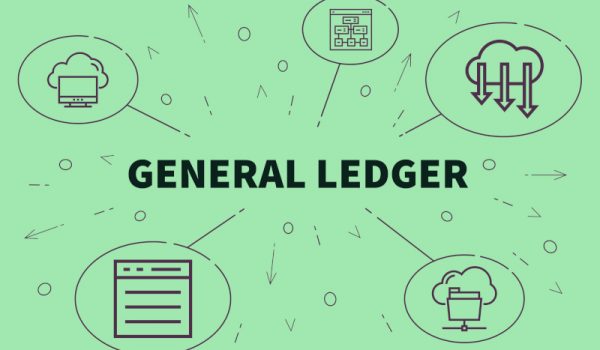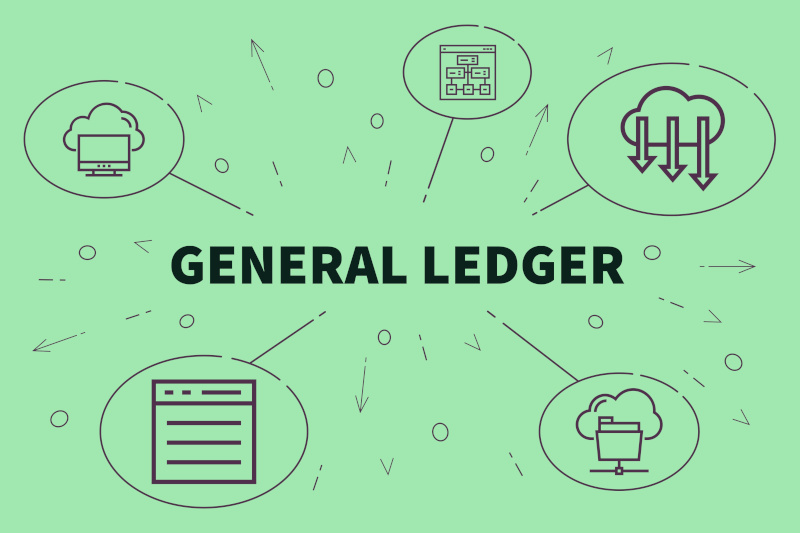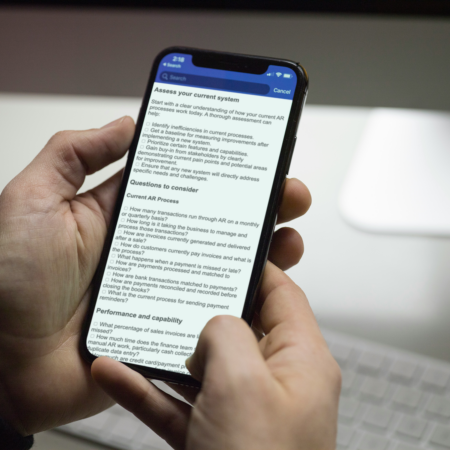
Big business requires large-scale finances. If you’re bringing in millions of dollars in revenue and expenses, you need a general ledger system with the appropriate bandwidth. For enterprise-level organizations, this means leveraging an accounting system equipped with an enterprise ledger.

What is an Enterprise Ledger?
What differentiates the general ledger of a mid-sized business from that of a large corporation? On principle, both will share features that make them able to organize finances accurately and efficiently. However, the first key differentiator is the level of performance and depth you can leverage from the general ledger. Secondly, Enterprise organizations simply need more of everything. This means more flexibility and resilience to handle a larger amount of financial transactions and account information.
Moreover, if you’re a large business, you need a general ledger that can grow with your business’ demands. Seek features designed to lighten your financial management burdens and process debits and credits as efficiently as possible. Let’s take a closer look at these features.
Scalability
The general ledger needs to be flexible in order to continue serving your business. Not all general ledgers can adapt to your needs, which is problematic when you’re managing a large corporation. Do you really want your back office to suffer from a general ledger that can’t keep up? One major advantage of Accounting Seed is our ability to fully scale with an organization’s accounting.
An enterprise general ledger needs to have the following.
- Increased data management and storage
- High-volume batch processing
- Advanced, real-time reporting
- Robust features for consolidations of multi-legal entities
Functions like high-volume batch processing let your team handle large-scale transactions quickly and reliably. This allows operations to continue growing with with the influx of more data, consolidations, and transactions. Enterprise general ledgers should also feature a chart of accounts that you can easily manipulate and adjust.
Automated Enterprise General Ledger Features
High-volume accounting is demanding on both the enterprise general ledger and your staff. For a large company, manually processing accounting data is not only time-consuming but also costly. The busier your organization, the more chance of making data errors in the accounting system. Automation eliminates redundant work and helps you keep your financial data accurate throughout your organization.
Enterprise ledgers, like Accounting Seed’s, automate back office workflows and financial consolidation activities. This gives companies the financial details they need in real-time while streamlining the whole financial process.
Multi-Company Functionalities
If your company is composed of multiple entities, you need a system that will facilitate all their financial requirements in a single space. Therefore, enterprise ledgers should also have a multi-ledger function. Why is this important?
Using separate databases and logins for each entity within your organization adds extra steps to an already complicated financial process. This makes it harder for you to manage the different transactions and data of your company as a whole. This is what makes QuickBooks a risky choice for growing companies. Juggling separate ledger databases also opens your company up to data inconsistencies.
Multi-ledger functionality enables users to assign existing lists, process definitions, or charts of accounts to the companies in your corporation. Secondly, this function facilitates the sharing of specific data like customers and sales info between entities. Thirdly, you can establish new accounts or companies with complete customization for internal transactions, bank accounts, and more.
Multi-Currency Functionalities
If your company works with different currencies, your enterprise ledger must handle the different rates and exchanges. Recording gains or losses based on fluctuations in foreign currency exchange rates keeps your finances accurate and compliant. This ensures that your teams will have a smooth reconciliation process and help prevent financial delays with your operations abroad.
Customizable and Configurable
Flexibility is a common theme throughout the features previously mentioned for a reason. For efficient financial processes, the general ledger should be customizable and configurable to key business requirements. You dictate the exact specifications, like when transactions post to sub-ledgers and the general ledger system. Besides making life easier, controls like this keep your finances aligned throughout the organization.
Smooth Bank Reconciliation Process
Enterprise ledgers should enable you to clear bank transactions and facilitate quick reconciliations through minimal data entry. With an enterprise-level organization, your general ledger system should be an easy source of accurate accounting details. One key feature the general ledger should contain is audit trail, which lets you track changes throughout the reconciliation process. This makes reconciliations, auditing, and reporting more efficient and accurate.
Empower Your Company with Accounting Seed’s Enterprise Ledger
Unlike standard general ledger software, Accounting Seed’s provides the accessibility, scalability, and flexibility you need to grow and thrive.
See Accounting Seed in action
Get a close-up view of how accounting on Salesforce can eliminate the need for costly integrations—and silos of mismatched information—by sharing the same database as your CRM.


